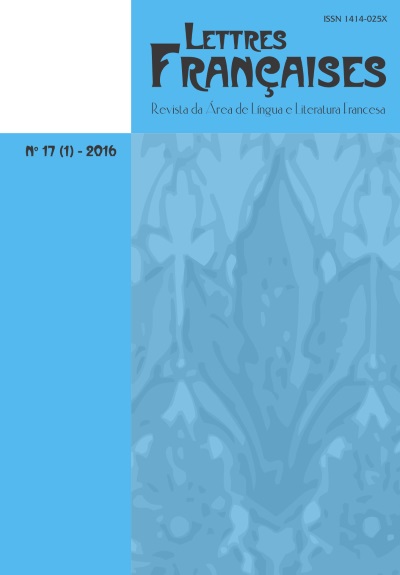Equivalências – Melancolia e Êxtase em “Enivrez-vous” de Charles Baudelaire e “Vinho” de Cecília Meireles
Palavras-chave:
Cecília Meireles, Charles Baudelaire, Embriaguez, Poesia,Resumo
O eu lírico ceciliano, assim como o eu lírico baudelairiano, encontrase em estado de êxtase à medida que expande sua capacidade criadora. Os dados da exterioridade encontram-se a serviço da inventividade, uma vez que são captados pelo olhar daquele que decifra e cria – o artista. O repúdio à visão limitante e comum, bem como a melancolia impulsionam a resposta à realidade desprovida de qualquer inspiração. Essa resposta encontra-se presente nos poemas “Vinho” e “Enivrez-vous” – respectivamente encontrados em Viagem (1939) e Spleen de Paris (1869). O alcance do êxtase é impulsionado por meio do artifício: no contexto dos poemas, o vinho instaura uma apreensão singular acerca das coisas. Sob o efeito do álcool, o sujeito poético de Cecília Meireles e o eu lírico de Charles Baudelaire rendem-se a elucubrações capazes de revelar a complexa natureza de suas individualidades – naturezas essas calcadas pela inquietação desconcertante perante a própria existência e pela melancolia. Na proporção de suas idiossincrasias, ambos os sujeitos poéticos tecem profundas reflexões sobre o tempo, os questionamentos existenciais e celebram – ao servir-se do vinho, uma espécie de paradoxal lucidez desesperada. Para não se tornarem “escravos martirizados do tempo” (BAUDELAIRE, p.128), o eu lírico baudelairiano sugere render-se ao estado de embriaguez e, de sua parte, o sujeito poético ceciliano aquiesce a esse conselho – mostrando conformidade às mais variadas condições anímicas e psíquicas que o êxtase poético propicia.Downloads
Publicado
03/11/2016
Edição
Seção
Artigos
Licença
Os manuscritos aceitos e publicados são de propriedade da Revista Lettres Françaises. É vedada a submissão integral ou parcial do manuscrito a qualquer outro periódico. A responsabilidade do conteúdo dos artigos é exclusiva dos autores. É vedada a tradução para outro idioma sem a autorização escrita do Editor ouvida a Comissão Editorial.

